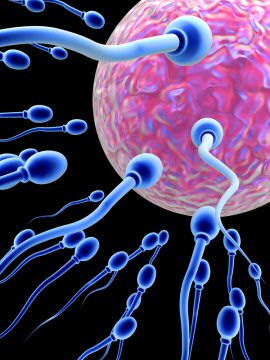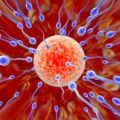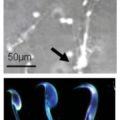
The autoimmune disorder known as immune infertility affects both men and women, causing their immune systems to “wage war” on sperm. Now, researchers think they may be closer to understanding what causes the body to react in this way. University of Virginia (UVa) researchers have reported finding a new human protein – radical radial spoke protein 44 (RSP44) – that causes serum from infertile men to produce antisperm antibodies (ASA).
“We’ve spent several years looking for sperm molecules that evoke antibody responses in humans,” says Dr. John C. Herr, director of UVa’s Center for Research in Contraceptive and Reproductive Health. “The identification of RSP44 gives us additional insight into immune infertility and may prove useful in diagnosing the disorder in a subset of men. Sperm proteins like RSP44 will likely not be dominant antigens in everyone.”
The discovery of RSP44 promises to broaden scientific thinking about the causes of immune infertility. Until now, researchers believed that ASA only targeted the surface of the sperm membrane. “Because RSP44 is located in the heart of the axoneme, it doesn’t appear to be directly involved in ASA binding at the sperm membrane. Identifying RSP44 as an antigen in several individuals indicates it may serve as a useful biomarker of the anti-sperm response,” notes co-researcher Dr. Jagat Shetty. “There may be mechanisms underlying infertility that are yet to be discovered.”
In women with immune infertility, the antibodies neutralize sperm by clumping them together and destroying their membranes. ASA also coats over receptors involved in sperm-egg binding and fertilization. An estimated 12 to 15 percent of unexplained infertility in women is linked to ASA. In rare cases, these antibodies have caused women to go into anaphylactic shock upon insemination.
In men, immune infertility has several causes, including vasectomies. After a vasectomy, the body can no longer release sperm and produces antibodies to help engulf and clear them. ASA persists for years in the circulation of vasectomized men and may cause reduced fertility in those who have the procedure reversed.
Related:
St Valentine’s Day Sperm Massacre
Fertility Risk From Laptop Computers
Researchers Investigate Giant Sperm Paradox








Comments are closed.